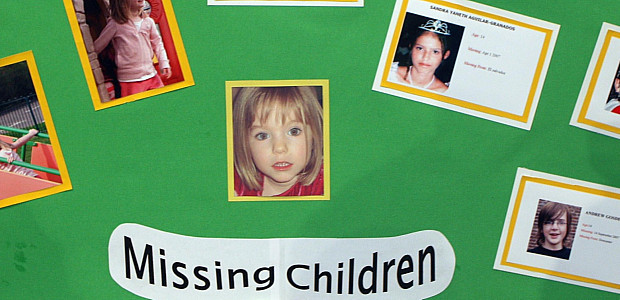|
Ann Coffey
MP writes for ePolitix.com ahead of her Westminster Hall debate on
missing people.
Every year an astonishing 250,000 people in the UK are reported missing
to the police and two-thirds of those are under the age of 18.
Occasionally the country can be overwhelmed by public anxiety when faced
with awful child abduction, like the case of
Madeleine
McCann, but we remain unaware of the vast majority of cases.
My adjournment debate on
missing people today will provide an
opportunity to talk about the problems families face when their loved
ones go missing and to highlight the current threat of closure to both
the UK Missing Person's Bureau and the charity missing people, two
agencies which work hand-in-glove to help missing people and the
devastated families they leave behind.
About 100,000 children under 16 runaway each year and 20 per cent will
be at high risk of being hurt or harmed. They are exposed to violence,
criminality, substance misuse, sexual exploitation and trafficking.
The problem is bigger than most people ever imagine. As a local MP and
chair of the All Party Parliamentary Group for Runaway and Missing
Children and Adults, I was very interested in a recent exercise by the
Greater Manchester Police where the force tweeted every incident they
were involved in for 24 hours.
In that short space of time there were 127 calls relating to missing
people, including five relating to missing children in my own
constituency of Stockport alone. That's a lot of people and a lot of
anguish in a short space of time.
The cases in my area included a 10 year old boy, two 14 year olds, one
15 year old and one child whose age was not given.
As it stands the very core of our frontline missing person services are
under threat. We face the prospect that with one single blow, the entire
national investment into missing persons could be ended.
The closure of the National Policing Improvement Agency places the
existence of the UK Missing Persons Bureau, which is the only UK agency,
focused exclusively on missing people, under threat of total closure.
The Bureau alone possesses the national records for unidentified bodies
and provides support to nationwide police missing person investigations.
The charity Missing People, which works closely with the police and the
Bureau providing a unique service supporting families, is at risk
because it faces the total withdrawal of its core government funding of
£500,000. Since April the charity has taken more than 52,000 calls for
help from runaway children, missing adults and the families left behind.
I will be arguing that instead of removing the missing person's
infrastructure, we must maintain investment and underpin it with new
legislation which supports existing services and fills in much needed
gaps.
I will be calling on the government to take a number of measures
including developing a National Missing Person's database and the
recording and sharing of information between the police, children's
services, care homes, Ofsted and the voluntary sector. This could be
used to analyse patterns of running from home and local authority care.
We also need legislation for local authorities to record how many
children and young people are missing in their locality and to ensure
return interviews are carried out. The police should also work closely
with Local Safeguarding Children's Boards to develop multi-agency
procedures for when a child goes missing.
I would also like the government to draw up a green paper on missing
persons, to protect missing adults and children. In the spirit of the
"Big Society" we could use this to explore using Missing People staff
and volunteers to further support police and families.
We also need changes in the law to force coroner's to co-operate with
the police in missing person inquiries and for legislation for
presumption of death and for every family of a missing person to be
signposted to Missing People's free emotional, practical and legal
support.
For the families of the disappeared, every day is a painful place of
hope and despair, hoping for news and worrying that not everything is
being done to find their loved ones. We must send out a signal to them
that they will not be forgotten. |


